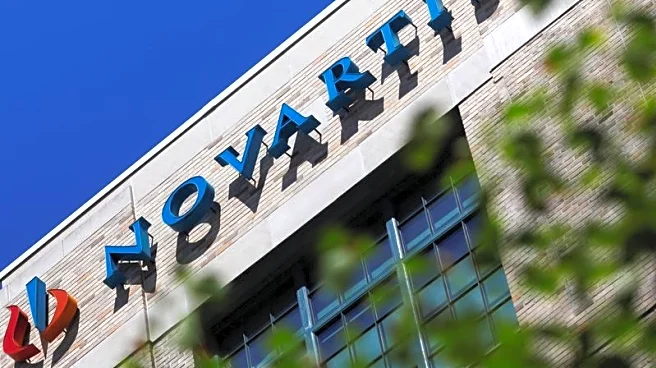What's Happening?
Target's incoming CEO, Michael Fiddelke, has announced a significant reduction in the company's corporate workforce, with 1,800 positions being cut. This move marks the first major round of layoffs in a decade
for the Minneapolis-based retailer. The layoffs include 1,000 employee terminations and the closure of 800 open roles, affecting approximately 8% of Target's corporate workforce. Fiddelke, who is set to take over as CEO on February 1, emphasized that these changes are necessary to simplify operations and position Target for future growth. The decision comes as Target faces stagnant sales and aims to rebound from declining store traffic and inventory issues.
Why It's Important?
The layoffs at Target highlight the challenges faced by the retailer in a competitive market, where it has struggled to maintain growth amid declining sales. Target's reliance on discretionary items, which account for about half of its sales, makes it more vulnerable to economic fluctuations compared to competitors like Walmart. The company's stock has seen a significant decline, contrasting sharply with the performance of its peers. The restructuring aims to streamline operations and improve decision-making processes, potentially impacting the company's ability to innovate and respond to market demands. Employees affected by the layoffs will receive severance packages, but the move underscores the broader economic pressures on the retail industry.
What's Next?
As Michael Fiddelke prepares to assume the role of CEO, Target will focus on implementing strategies to revitalize its sales and improve customer experience. The company plans to invest in technology and simplify its operations to enhance growth prospects. Stakeholders, including employees and investors, will be closely monitoring the impact of these changes on Target's performance. The retailer's ability to navigate these challenges and adapt to consumer trends will be crucial in determining its future success. The leadership transition and strategic adjustments may also influence Target's competitive positioning in the retail sector.
Beyond the Headlines
The layoffs at Target raise questions about the ethical implications of corporate restructuring and its impact on employees. As the company seeks to streamline operations, it must balance the need for efficiency with the well-being of its workforce. The decision to cut jobs reflects broader trends in the retail industry, where companies are increasingly leveraging technology to drive growth. This shift may lead to long-term changes in employment patterns and the nature of work in the sector. Additionally, Target's focus on discretionary items highlights the cultural dimensions of consumer behavior and its influence on retail strategies.












